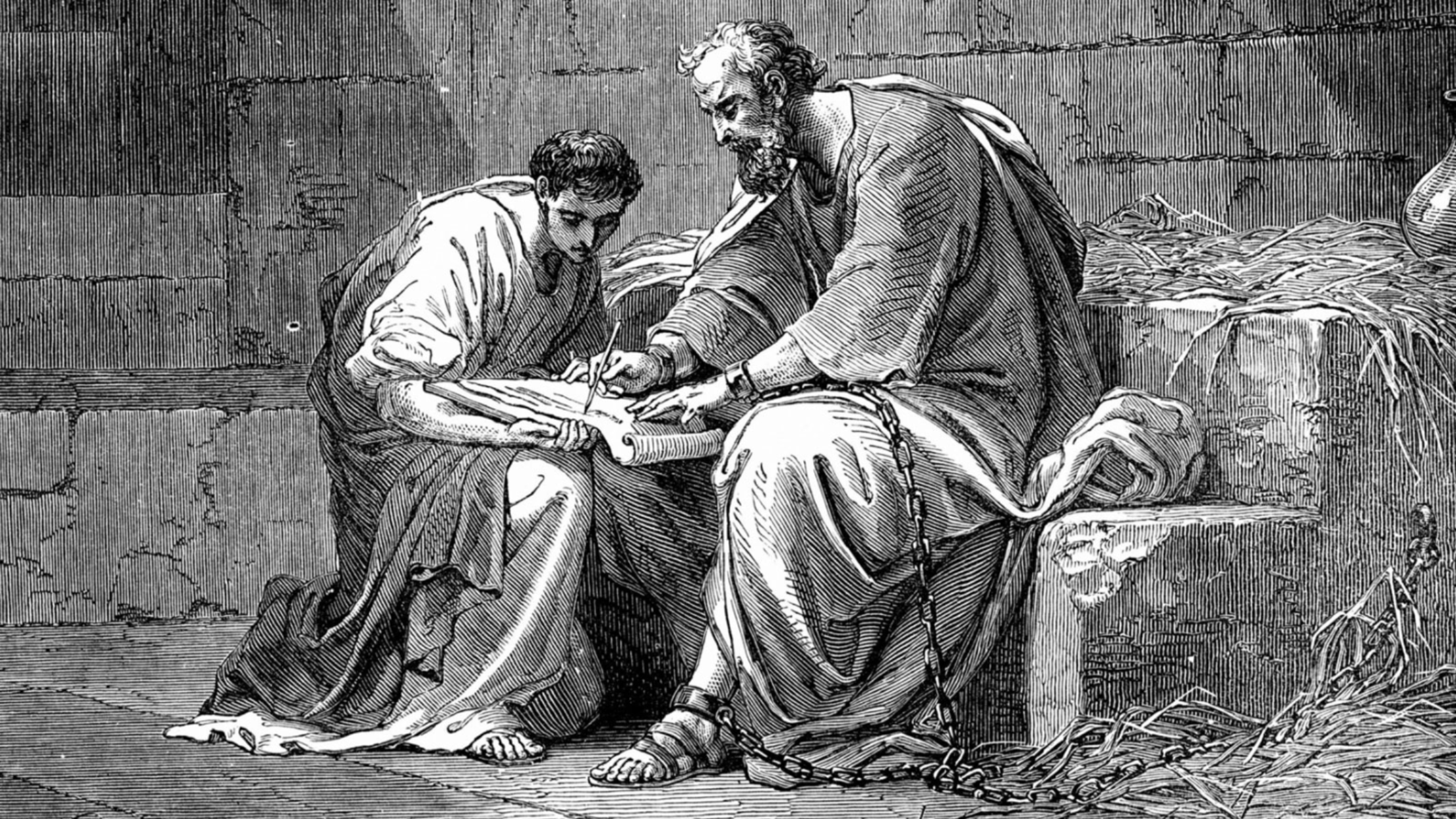Philemon 1:10-14
“I appeal to you for my child Onesimus, whom I have begotten in my imprisonment, who formerly was useless to you, but now is useful both to you and to me. I have sent him back to you in person, that is, sending my very heart, whom I wished to keep with me, so that on your behalf he might minister to me in my imprisonment for the gospel; but without your consent I did not want to do anything, so that your goodness would not be, in effect, by compulsion but of your own free will.”
Paul is writing from prison to Philemon, a fellow Christian whose home is also used as a church, in order to persuade him to take back Onesimus his former slave. Onesimus had stolen from Philemon and had fled from him. While in prison, Paul met Onesimus and witnessed to him. As a result, Onesimus converted to Christianity. Because Onesimus was now a brother in Christ, Paul appeals to Philemon to not just take Onesimus back as a slave, but to take him back as a brother in Christ. It is why Paul says that Onesimus is now “useful”. In his letter, Paul then appeals to Philemon’s “free will,” respecting his personal conviction on the matter, not wanting to influence Philemon by “compulsion” to take Onesimus back.
Free will is a tricky concept. It’s tricky because it means different things to different people. Many people use the term without realizing that there are basically two types of free will:
1) Libertarian
2) Compatibilist
Libertarian free will refers to a will which is free to make choices unencumbered. It’s a will that is immune to tendencies or desires. It is not bent in any way towards a certain option. It’s completely independent.
Compatibilist free will refers to a will which is free to make choices according to who someone is. It’s a will that is subject to tendencies or desires. It is bent towards a certain option. It’s dependent upon the nature of the one who possesses it.
From a Biblical perspective, libertarian free will does not exist. Choices are made according to one’s nature exclusively. Those of a fleshly mindset make fleshly choices, and those of a mindset of the Spirit make Godly choices. It’s why Paul points out in his letter to the Romans that the unregenerate will not only not subject themselves to the law of God, but they are not even able to do so, and that they cannot do so:
Romans 8:6-8
“For the mind set on the flesh is death, but the mind set on the Spirit is life and peace, because the mind set on the flesh is hostile toward God; for it does not subject itself to the law of God, for it is not even able to do so, and those who are in the flesh cannot please God.”
In other words, we can only make choices which are compatible with our mindset.
When Paul wrote to Philemon, he could, with full confidence, send Onesimus back to Philemon uninfluenced, knowing that Philemon would gladly welcome Onesimus back.
Why?
Because, Philemon is a Christian. His mind is set on the Spirit. Paul hints at this in the prior verses. He even turns away from using his authority to order Philemon to welcome back Onesimus, and instead opts for an appeal to Philemon:
Philemon 1:1-9
“Paul, a prisoner of Christ Jesus, and Timothy our brother,To Philemon our beloved brother and fellow worker, and to Apphia our sister, and to Archippus our fellow soldier, and to the church in your house: Grace to you and peace from God our Father and the Lord Jesus Christ. I thank my God always, making mention of you in my prayers, because I hear of your love and of the faith which you have toward the Lord Jesus and toward all the saints; and I pray that the fellowship of your faith may become effective through the knowledge of every good thing which is in you for Christ’s sake. For I have come to have much joy and comfort in your love, because the hearts of the saints have been refreshed through you, brother. Therefore, though I have enough confidence in Christ to order you to do what is proper, yet for love’s sake I rather appeal to you—since I am such a person as Paul, the aged, and now also a prisoner of Christ Jesus—”
Paul appeals to who Philemon is in Christ, knowing that his mind (which is “set on the Spirit”) will make a proper decision. Towards the end of the letter, Paul again affirms this notion second time:
Philemon 1:21
“Having confidence in your obedience, I write to you, since I know that you will do even more than what I say.”
Brothers and sisters, may we ever continue to develop a mind which is set on the Spirit, and may we (Christians) never cease in remembering that Christ has made us anew, so that our choices reflect who we are in Christ.
2 Corinthians 5:17
“Therefore, if anyone is in Christ, he is a new creation. The old has passed away; behold, the new has come.”
Godspeed, to the brethren!
FOLLOW theidolbabbler.com ON TWITTER!!
Follow @theidolbabbler
Reblogged this on Talmidimblogging.
LikeLike
Thanks fo this information. I have been in a lot of discussions about free will and I never realized there are two kinds. The next time I talk about the subject I will be better prepared.
LikeLike
I’m glad that this helped. It was an eye opener for me as well when I learned about it.
LikeLike